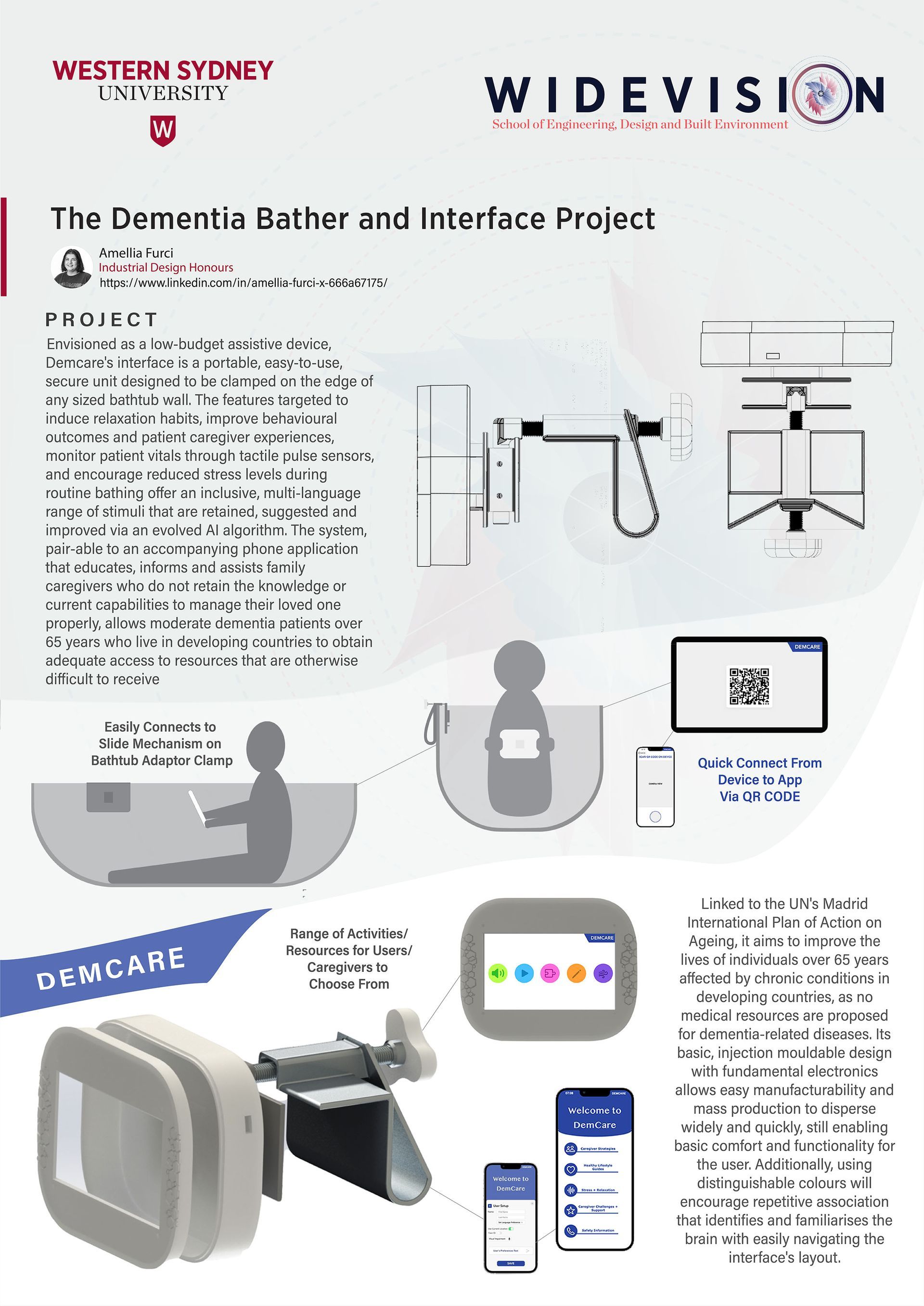Amellia Furci
Bachelor of Industrial Design, Honours, Final Year
Dementia, primarily affecting individuals over 65, disrupts the brain's core neuron transmissions, resulting in a loss of cognitive function and reduced memory retention. Due to its increased normalisation and prevalence in developing countries, adequate resources to relieve and aid patients are minimal, as behavioural symptoms continue to affect populations within moderate stages or higher. Through implementing a multidisciplinary approach, the final design delivers a low-budget AI assistive aid, reflecting the goals set within the UN's Madrid International Plan of Action on Aging. Monitoring the patient's vitals and implementing stimulates accordingly it provides a straightforward interactive interface that individuals with dementia can use to lower their stress levels during routine bathing. By employing calm-related stimuli such as music, puzzles, videos, drawing, meditation, etc., it investigates and acknowledges the outcomes of cognitive decline, providing more thought-provoking objectives for the user.
The Dementia Bather and Interface Project
The Industrial Design Research Project, rooted in necessity and global altercation, investigates diverse design issues within a chosen thematic environment, identifying necessary research gaps to promote target audience-based solutions.
The Dementia Bather and Interface Project, analysing the psychological, cognitive, and physical challenges moderate dementia patients over 65 years old and their caregivers experience while bathing in domestic households, further evaluates the differing circumstances low to middle-income families in developing countries endure daily. With bathing being the first activity of daily living to be forgotten, a conducted systemic review of pertinent literature further illustrates that at-home carer burden and mental health factors are heavily linked to the patient's frequency to resist care, straining the carer's willingness and ability to manage/assist a cognitively impaired individual. Additionally, from a societal perspective, dementia in developing countries is perceived as part of the natural aging process, and as a consequence, premature mortality rates have increased due to insufficient allocation of resources. With an estimated 71% of 81.1 million global dementia being in developing countries by 2040, an additional 4-6 million will increase annually, with 3/4 being cared for in their residence by a family member.
Through identifying a primary correlation between the prospects of assistive AI and interface technology to enhance daily function and formidable circumstances, the approach's ideation focuses its core principles on destressing stimulates, simultaneously aiding family caregivers who lack proper resources and education from their local government to care for their impacted loved ones. Furthermore, by employing primary methodologies, the project acknowledges the target user's key challenges and experiences, idealising simple yet impactful elements to facilitate assistive change. The project's process investigating an ideal composition between user interface design and external hardware components has allowed the continuous exploration and development of the users' interactive controls from initial ideation to current rendition. Illustrating its ability to pair with an accompanying mobile application and demonstrate a theoretical AI algorithm that suggests lower stress level stimulation based on the user's heart rates, it aims to improve the lives of individuals over 65 years affected by chronic conditions as well as their family caregivers in developing countries.





